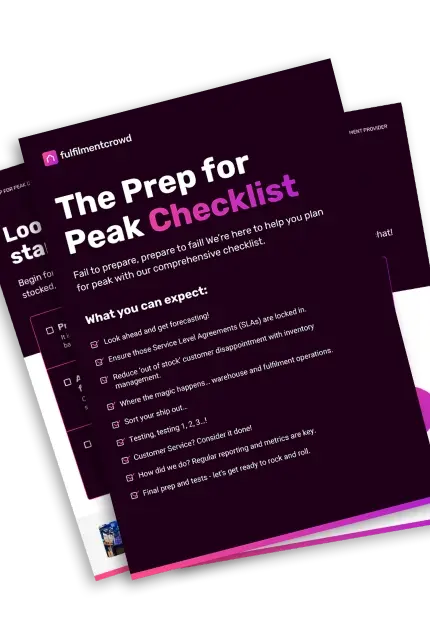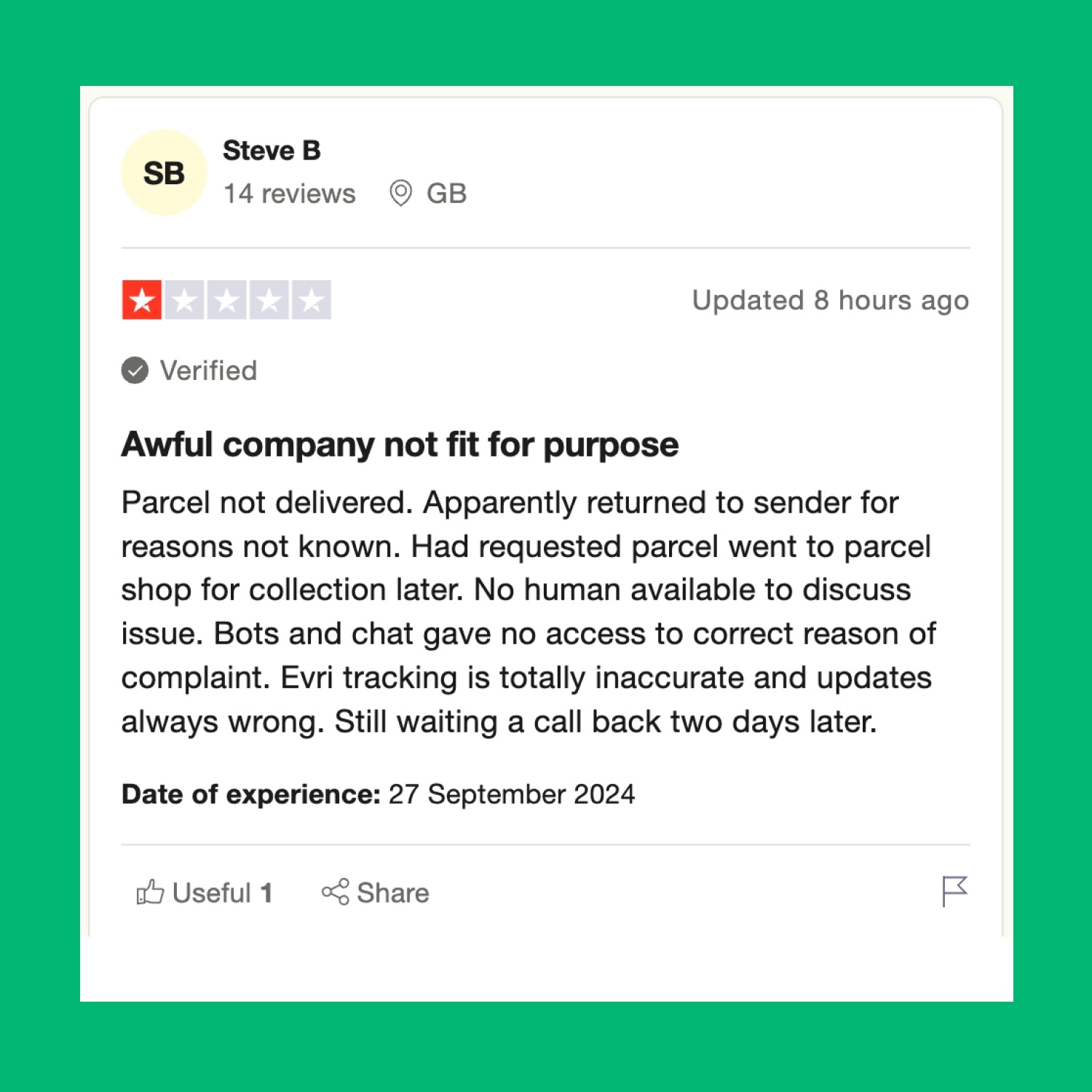Learn more about when you should switch to a different order fulfilment partner with fulfilmentcrowd.
Audio reader

Download your copy of the OmniDisruptors Report.
Lessons from the brands redefining retails in the omnichannel era.
Download the reportAh, peak season. The time of year when eCommerce brands cross their fingers, ramp up operations, and pray the fulfilment gods are on their side. If you’re like most online businesses, this is when the orders pour in faster than you can restock your shelves. It’s the season of endless potential - and endless headaches. And while a spike in orders should be a reason to celebrate, it can quickly become a horror show if your fulfilment provider starts misplacing parcels left, right, and centre. The true cost of lost parcels goes far beyond the price of replacing goods. Let’s dig into the real damage they cause.
1. Lost parcels = lost trust (and it's priceless)
Trust is the epitome of every customer relationship. You can spend thousands (or millions!) on digital marketing campaigns, Instagram ads, influencer shoutouts, and SEO optimisation to attract customers to your site. But all of that can go down the drain the moment one of your customers experiences a lost parcel. It doesn’t matter that you offer a replacement or a refund - your customer trusted you to deliver on time, and when you didn’t, that trust took a nosedive.
We’re not just talking about one angry customer here. In the world of eCommerce, customers talk. Reviews on Trustpilot, social media rants, and angry X threads can spread like wildfire. What starts as one lost parcel can quickly lead to multiple lost customers. And believe us, it’s a lot harder (and costlier) to regain lost trust than to win a new customer. According to HubSpot, it costs 5 - 25 times more to acquire a new customer than to retain an existing one and Shopify reported that 43% of shoppers say they will never shop with a retailer again following a poor delivery experience. That’s right. You’ve not only lost the current sale, but also any chance of repeat business from that customer. Ouch.
2. The customer service snowball effect
When parcels go missing, customer service teams feel the impact first. Those innocuous tracking numbers turn into ticking time bombs when customers realise their long-awaited orders aren’t showing up.
Your inbox quickly fills with ‘Where’s my order?’ queries, and suddenly, the festive season feels more chaotic than cheerful. Each lost parcel spawns multiple customer service interactions: first the enquiry, then the escalation, followed by the apology email, the tracking investigation, the “here’s what we’re doing” email, and finally, the replacement or refund. Your once-efficient customer service team is now buried in a sea of support tickets, and their stress levels are through the roof. And no amount of AI can fix it.
This isn’t just emotionally taxing; it’s financially draining. Each customer interaction costs time and money, and when you’re dealing with peak season volumes, the cost of handling these lost parcel issues can escalate dramatically. In fact, many businesses underestimate how much they spend on customer service during peak. If your team is dealing with fulfilment issues instead of growing customer relationships, you’re paying a high price.

Download our 'Prep For Peak' Checklist
Take a ‘Peek’ at our must-ask questions and checklist to get ready for peak season success!
3. Refunds, replacements, and revenue drain
Here’s the cold, hard truth: every lost parcel costs you money. First, there’s the immediate cost of replacing the product. Depending on your margins, that alone might eat into your profits. But wait - it gets worse! There’s also the cost of shipping that replacement, and the potential loss of revenue from a cancelled order or refund request.
Consider this scenario: a customer orders a premium item during Black Friday. It’s a high-value product, and margins are already thin due to the seasonal discount you’ve offered. Now, the parcel is lost. You’re not just replacing the item; you’re shipping it again at your expense. Your profit margin on that sale? Gone. And if the customer decides they’ve had enough and cancels the order, you’re out the revenue entirely. What should have been a successful sale turns into a costly nightmare.
The real kicker? The cost of resolving these issues goes up significantly during peak because everything is time-sensitive. You may have to expedite shipping to appease an angry customer, and that can be wildly expensive when you're already stretched thin.
4. Damaged brand reputation: More than just money
In the eCommerce game, reputation is everything. Peak season is your chance to shine - or crash and burn. When customers start experiencing delays or lost parcels, their perception of your brand shifts from "reliable" to "risky." The worst part is that it can take just a few bad experiences to tarnish years of hard work in building a reputable brand.
Think about it: you’ve spent time, effort, and money establishing your brand as one that customers can rely on. But all it takes is a few lost parcels during peak for customers to start doubting you. Negative reviews pile up, your Trustpilot rating takes a nosedive, and suddenly you’re not the first choice for that new customer who’s browsing for a reliable gift provider.
A recent study by Emplifi found that over 90% of consumers read online reviews before making a purchase. If your fulfilment provider is dropping the ball, they’re not just damaging your profits - they’re damaging your reputation. And recovering from a tarnished reputation is much harder than dealing with a one-off complaint.


5. Missed golden quarter opportunities
The last quarter of the year is crucial for most eCommerce businesses. Deloitte reported that eCommerce sales during the festive season represent 30 - 40% of a retailer’s annual sales. Losing parcels during this time doesn’t just affect your current revenue - it can impact your long-term growth and opportunities.
Imagine a scenario where a customer was planning on purchasing multiple gifts from your store, but after one negative experience, they decide not to take the risk. Now, you’ve not only lost that immediate sale, but also the potential revenue from what could have been a long-term, loyal customer relationship.
And then there’s the ripple effect. If word gets out that your fulfilment isn’t up to par, you risk losing more than just individual sales. You could miss out on large B2B contracts or partnerships because your reputation for reliability has been compromised. In a world where every missed opportunity could be the one that takes your business to the next level, can you really afford that?
6. It’s not just about the money - it’s about your sanity
Finally, let’s talk about stress. Peak season is already intense. You’ve got deadlines to hit, goals to achieve, and competitors to outshine. The last thing you need is a fulfilment provider who can’t keep up. The stress of managing lost parcels, angry customers, and operational fires can take a serious toll on your team’s morale and your own sanity.
Do you really want to spend the holiday season fighting fulfilment fires? If you’re constantly worried about whether your provider will lose more parcels, then something has to change. A reliable fulfilment partner should make your life easier, not harder.


The solution? Switch to a provider you can trust
If this all sounds painfully familiar, it’s time to consider a change. fulfilmentcrowd offers an intelligent, reliable fulfilment solution that can handle the pressures of peak season with ease. With a track record of success and a technology-driven approach to logistics, we’re here to make sure lost parcels - and all the chaos that comes with them - become a thing of the past.
Make the switch before it’s too late.
Looking for more industry insights?
Check out our other recommendations just for you!
See allGet ready for Black Friday with fulfilmentcrowd’s expert fulfilment tips. From stock organisation to fast returns processing, learn how to handle it smoothly. Plus, find out how switching to fulfilmentcrowd can help optimise your peak season fulfilment.
What are the top 3 criteria you should consider before switching your fulfilment provider? Why should you switch to fulfilmentcrowd?


.jpg?width=300&name=Dublin-warehouse%20(1).jpg)
.webp?width=300&name=Omnidistruptors-mockup1%204%20(1).webp)
.jpg?width=300&name=GAAstore-lifestyle-image%20(2).jpg)

 By Alice Davies
By Alice Davies




